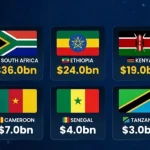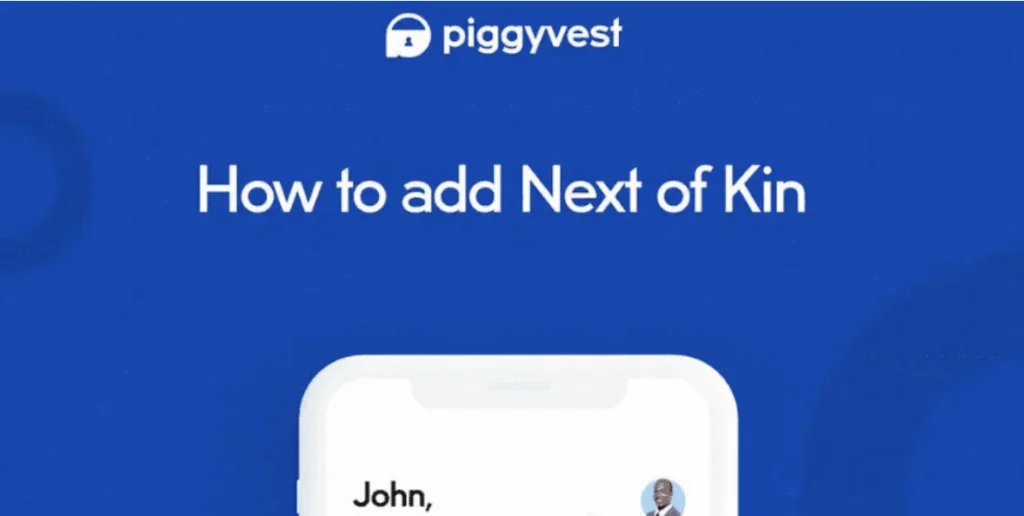PiggyVest has restated its commitment to a feature designed to provide financial access to users’ trustees: the Next-of-Kin (NOK) access feature. In response to a recent public inquiry on X (formerly Twitter), the company confirmed that the NOK option has long been embedded in its services.
In its first response to what happens to a user’s matured funds after they die, Piggyvest said, “Their funds unlock at maturity, and then the designated Next of Kin (NOK) can access the funds.”
To properly inform the public on how such assets can be accessed, the fintech said, “Please note, funds of a deceased person with a Piggyvest account can be accessed by an executor/administrator who may be the listed next of kin, upon submission of relevant legal documentation.”
The tweet came as part of an ongoing public dialogue on inheritance and who gets all the assets after a person dies.
This public reminder brings into focus the importance of understanding how Nigeria’s legal system governs access to digital financial assets, an increasingly critical issue as more Nigerians rely on apps like PiggyVest for their savings.
What Nigerian Law Says About the Next-of-Kin Feature in Digital Assets
Inheritance in Nigeria is typically governed by the Administration of Estates Law and the Evidence Act. These statutes outline procedures for how assets, including digital ones, are distributed when a person dies, whether or not they left a will.
Under the Administration of Estates Law, a deceased person’s estate is transferred to designated heirs or administrators through a legal process. “Where a person dies intestate, the Letters of Administration permit the next of kin or other relatives to access and manage the deceased’s estate,” notes a report by legal advisory firm Templars.
The Evidence Act, particularly with its 2023 amendments, allows for the use of digital records and electronic signatures in legal proceedings, including wills and other estate documents. Legal experts say this opens the door for fintech platforms to legally recognise and process digital documents provided by beneficiaries or next of kin.
In practice, this means that beneficiaries seeking access to a deceased person’s PiggyVest account may need to present official documents such as a death certificate and a copy of Letters of Administration or a will, depending on the circumstances.
In Nigeria, the Central Bank’s provision on dormant accounts and for the next of kin favours financial institutions more than the families of the original owners of accounts.
“A bank account shall be classified as dormant if there has been no customer or depositor-initiated transaction in it for one (1) year after the last customer or depositor-initiated transaction. When the account becomes dormant. the bank shall institute controls consistent with its precautionary policies, including surveillance procedures and second level authorisation,” is all CBN says on the matter.
“There is nothing special about next-of-kin as far as succession is concerned. Next-of-kin is merely the first contact point if anything happens to you. He is someone empowered to make decisions for you in times of emergency or where you are not readily available or unable to make the decisions yourself”, he added.
So, with the CBN leaving NOK decisions to companies, it falls on the fintech company to make sure the next of kin receive their inheritance if a customer dies.
Next-of-kin conversations in Fintech
As Fintech usage rises in Nigeria, particularly among young and tech-savvy populations, platforms like PiggyVest have become central to personal finance management. Yet many users may not consider what happens to their accounts after they pass.
PiggyVest’s early adoption of the feature shows a proactive approach toward this legal intersection, even though many users may not yet fully understand its function.
The question of what happens to users’ digital lives after death is gaining relevance, not just in Nigeria, but globally. In Sub-Saharan Africa, where over 60% of the population is under the age of 25 and digital finance adoption is rising, understanding digital inheritance becomes essential.
Research by GSMA notes that mobile money and digital banking are now essential tools for financial inclusion. As more individuals store value on digital platforms instead of traditional banks, questions about continuity, succession, and access will only grow more pressing.
Despite these advances, there’s still a lack of public understanding about the procedures involved in digital asset inheritance. Many users are unaware that their next-of-kin information should be kept up to date or that their relatives will need to go through a formal legal process to access their savings.
For PiggyVest and other digital finance companies, education will be key. As users continue to demand more transparency and support in navigating these sensitive transitions, fintechs must communicate the implications of next-of-kin declarations and the supporting legal framework.
What Nigerian Law Says About the Next-of-Kin Feature in Digital Assets
Inheritance in Nigeria is typically governed by the Administration of Estates Law and the Evidence Act. These statutes outline procedures for how assets, including digital ones, are distributed when a person dies, whether or not they left a will.
Under the Administration of Estates Law, a deceased person’s estate is transferred to designated heirs or administrators through a legal process. “Where a person dies intestate, the Letters of Administration permit the next of kin or other relatives to access and manage the deceased’s estate,” notes a report by legal advisory firm Templars.
The Evidence Act, particularly with its 2023 amendments, allows for the use of digital records and electronic signatures in legal proceedings, including wills and other estate documents. Legal experts say this opens the door for fintech platforms to legally recognise and process digital documents provided by beneficiaries or next of kin.
In practice, this means that beneficiaries seeking access to a deceased person’s PiggyVest account may need to present official documents such as a death certificate and a copy of Letters of Administration or a will, depending on the circumstances.
In Nigeria, the Central Bank’s provision on dormant accounts and for the next of kin favours financial institutions more than the families of the original owners of accounts.
“A bank account shall be classified as dormant if there has been no customer or depositor-initiated transaction in it for one (1) year after the last customer or depositor-initiated transaction. When the account becomes dormant. the bank shall institute controls consistent with its precautionary policies, including surveillance procedures and second level authorisation,” is all CBN says on the matter.
“There is nothing special about next-of-kin as far as succession is concerned. Next-of-kin is merely the first contact point if anything happens to you. He is someone empowered to make decisions for you in times of emergency or where you are not readily available or unable to make the decisions yourself”, he added.
So, with the CBN leaving NOK decisions to companies, it falls on the fintech company to make sure the next of kin receive their inheritance if a customer dies.
Next-of-kin conversation“There is nothing special about next-of-kin as far as succession is concerned. Next-of-kin is merely the first contact point if anything happens to you. He is someone empowered to make decisions for you in times of emergency or where you are not readily available or unable to make the decisions yourself”, he added.
So, with the CBN leaving NOK decisions to companies, it falls on the fintech company to make sure the next of kin receive their inheritance if a customer dies.
Next-of-kin conversations in Fintech
As Fintech usage rises in Nigeria, particularly among young and tech-savvy populations, platforms like PiggyVest have become central to personal finance management. Yet many users may not consider what happens to their accounts after they pass.s in Fintech.
PiggyVest’s early adoption of the feature shows a proactive approach toward this legal intersection, even though many users may not yet fully understand its function.
The question of what happens to users’ digital lives after death is gaining relevance, not just in Nigeria, but globally. In Sub-Saharan Africa, where over 60% of the population is under the age of 25 and digital finance adoption is rising, understanding digital inheritance becomes essential.
Research by GSMA notes that mobile money and digital banking are now essential tools for financial inclusion. As more individuals store value on digital platforms instead of traditional banks, questions about continuity, succession, and access will only grow more pressing.
Despite these advances, there’s still a lack of public understanding about the procedures involved in digital asset inheritance. Many users are unaware that their next-of-kin information should be kept up to date or that their relatives will need to go through a formal legal process to access their savings.
For PiggyVest and other digital finance companies, education will be key. As users continue to demand more transparency and support in navigating these sensitive transitions, fintechs must communicate the implications of next-of-kin declarations and the supporting legal framework.
















